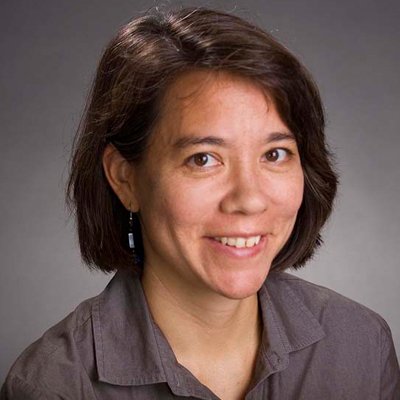Basic research supports clinical therapeutics for cancer and neurodegenerative diseases
When normal cells lose the ability to repair double-strand breaks in DNA, it is likely to cause diseases like cancer or drive the progression of tumor formation. Therefore, it is necessary to make sense of where these pathways fail and perhaps, in doing so, how to prevent cancer initiation. Dr. Tanya Paull, Professor of Molecular Biosciences at The University of Texas at Austin, is working to understand the mechanisms of DNA repair and oxidative stress signaling. She and her team generate data that impacts the translational and clinical science in the field and furthermore, has the potential for transformative effects on cancer, A-T, and neurodegeneration studies. Thus, using a fundamental approach to basic research, Dr. Paull is helping to tackle some of the most pressing health-related problems of our time.
Dr. Paull’s team utilizes insights from protein biochemistry to direct experiments in mammalian cells and in yeast that decipher molecular mechanisms. In many cases, these experiments are not being conducted in other laboratories because of the challenges inherent to the biochemistry, thus the approach is very unique. Dr. Paull and her team have found a way to conduct challenging yet rewarding research that illuminates mechanism through a variety of approaches. Additionally, Dr. Paull is committed to introducing young people to molecular biology. Through her efforts, she has helped mentor young students in undergraduate and graduate careers encouraging their interests in the sciences, and fostering their development as many have reached advanced postdoctoral positions. Therefore, Dr. Paull’s legacy extends beyond the likely health impacts of her work and to educating the next generation as well.
Current research includes:
-
DNA Repair: It is fundamental that every organism maintains the integrity of its genome. Double-strand breaks in chromosomal DNA are a particularly dangerous type of DNA damage, and all cells have dedicated systems that repair these breaks. In order to understand these mechanisms, Dr. Paull and her team investigate the molecular basis of these repair processes that are common to all organisms. Through her research, Dr. Paull hopes to highlight important implications for cancer to create targeted therapies.
- Signaling: Proteins within our cells are responsible for helping organisms respond and communicate the presence of both DNA damage and oxidative stress. In particular, ATM, a master regulator of the network of interactions that is often termed the “DNA damage response” tells cells immediately when there is a lesion and responds to breaks. In addition, ATM signals oxidative stress through a separate response, a function which is disrupted in patients with Ataxia-Telangiectasia, a childhood neurodegenerative disease for which there is no cure. Dr. Paull studies ATM in particular to support basic research that will help patients with this disease as well as other forms of neurodegeneration such as Alzheimer’s and Parkinsons disease.

Bio
Dr. Tanya Paull does research because she “enjoys figuring out how things work.” As a child, there were not many academics surrounding her. However, when she started working in a laboratory during her freshman year of college she quickly learned that a career in the sciences was not only exciting but also could be a reality for her. Working in three different labs while at Stanford, both at the University and abroad at Oxford, Dr. Paull was able to publish papers and get her feet wet in the research process. These experiences convinced her that research was the field for her.
After completing her undergraduate studies, Dr. Paull went to graduate school at the University of California, Los Angeles where she worked with Dr. Reid Johnson. There she learned to work with proteins that bend and wrap DNA. She then worked with Dr. Marty Gellert at the National Institutes of Health who is interested in the DNA recombination process that underlies the immune system, and the repair of cellular DNA breaks that result from this process. In 2000, Dr. Paull started her own lab at UT Austin where she has been conducting research ever since.
In her free time, aside from research, Dr. Paull enjoys spending time with her family. You can frequently find her cheering for her son on the sidelines of little league baseball games and spending time outdoors.


